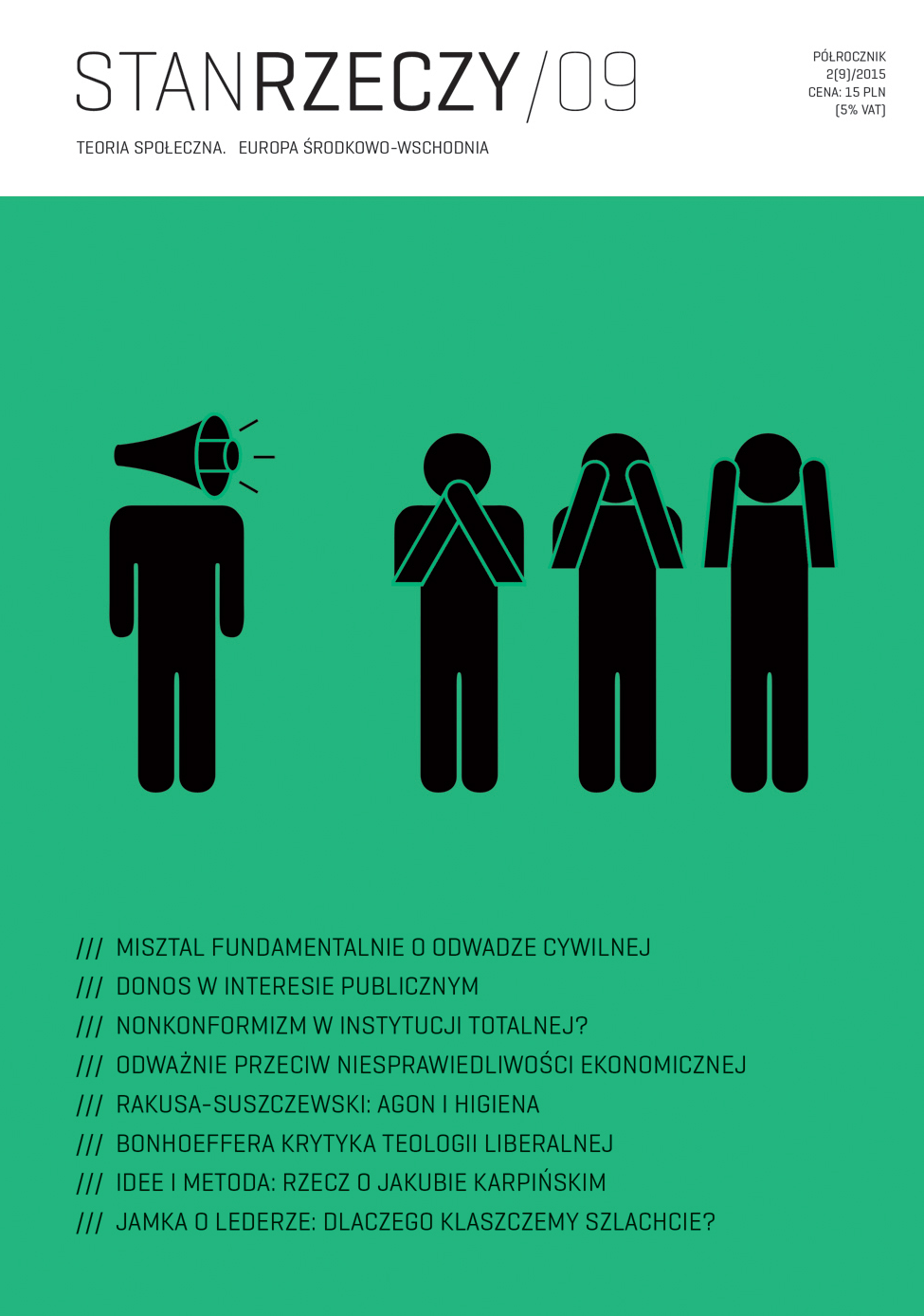
We kindly inform you that, as long as the subject affiliation of our 300.000+ articles is in progress, you might get unsufficient or no results on your third level or second level search. In this case, please broaden your search criteria.


Dominika Byczkowska "Ciało w tańcu. Analiza socjologiczna"
More...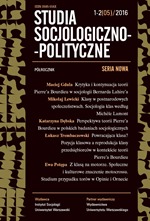
In the paper entrepreneurs’ class position is being discussed with reference to neo--Marxist and neo-Weberian conceptualizations. Conclusion of those considerationsis recall of Stanisław Ossowski’s differentiation of relational and gradational classes.What is proposed here is elucidation of distinction between those two as reduced toassociational or enumerative character of concepts describing class differentiation. Inthe light of such distinctions Bourdieu’s class theory can be seen as of relational andgradational character simultaneously.Determination of enrtreperneur’ class position in light of Bourdieu’s theory isdone through reconstruction of modal trajectories what allows to describe genesisof this “new” class, while brief description of the field of economical productionand its reformulations completes the picture. Finally, the problem of succession infamily enterprises is discussed in light of reproduction process. This succession is anongoing process now and de facto, most current refiguration of the field of economicproduction.
More...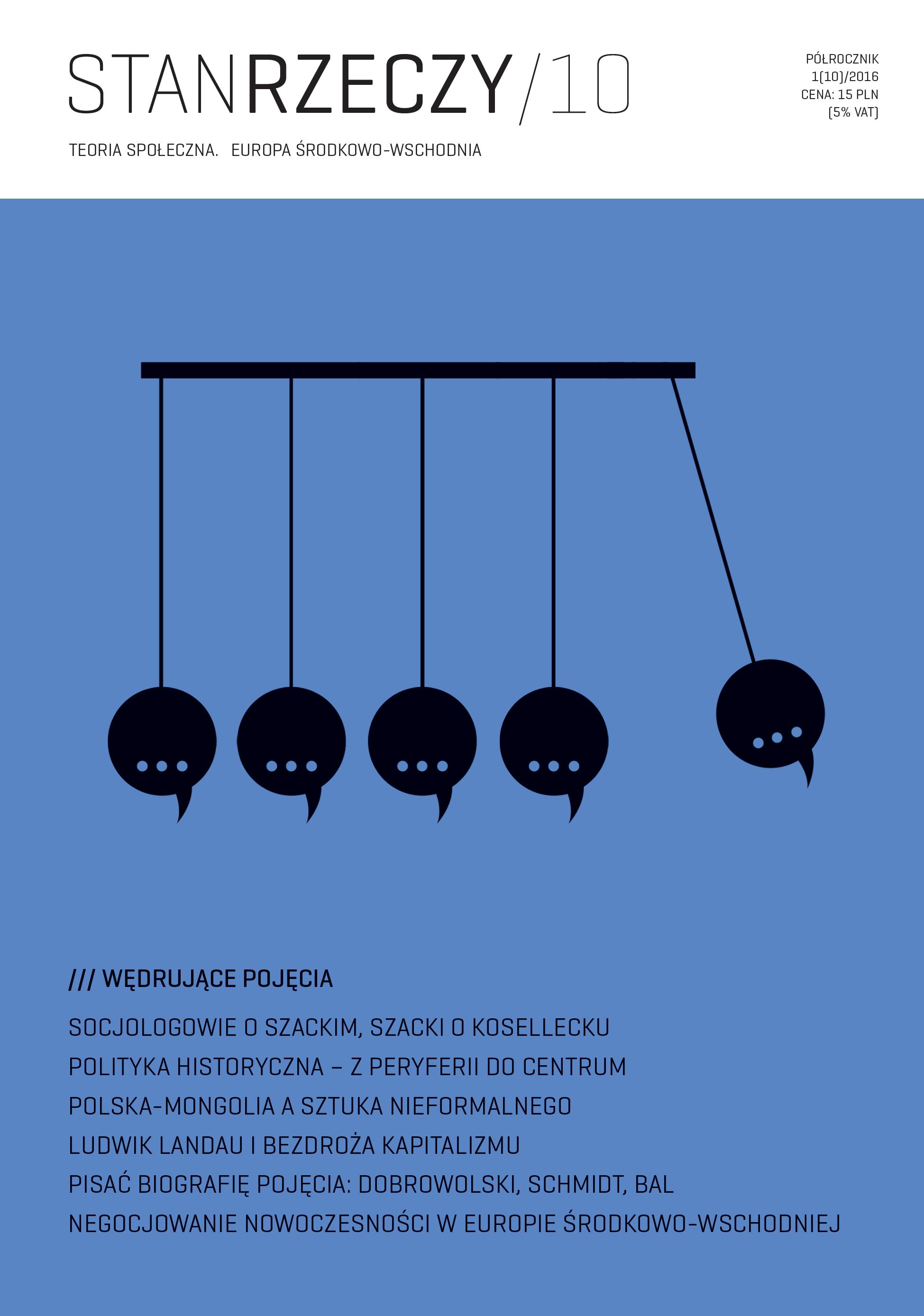
This paper undertakes a semantic analysis of the concept of historical politics, which is key to understanding the social transformations of the Third Republic and modernity in general. The idea of historical politics was popularized by the end of the 1990s by intellectuals associated with the Warsaw Club of Political Criticism (WKKP) and gained resonance as one of the cornerstones of the semantic revolution of the Law and Justice Party in the years 2003–2005. The institutionalization of this concept was the opening in 2004 of the Warsaw Rising Museum, whose co-creators were members of WKKP. The concept of historical politics appeared in the context of a critique of modernity and its characteristic break with the past to choose the future. At the same time, the concept of historical politics had a modern dimension: in the pursuit of a revolutionary transformation of reality, it chose a future that was not a break from the past, but a return to it. This article also references the prehistory of the concept in Bronisław Trentowski’s and August Cieszkowski’s philosophy of history, showing the deep layers of meaning of politics and history.
More...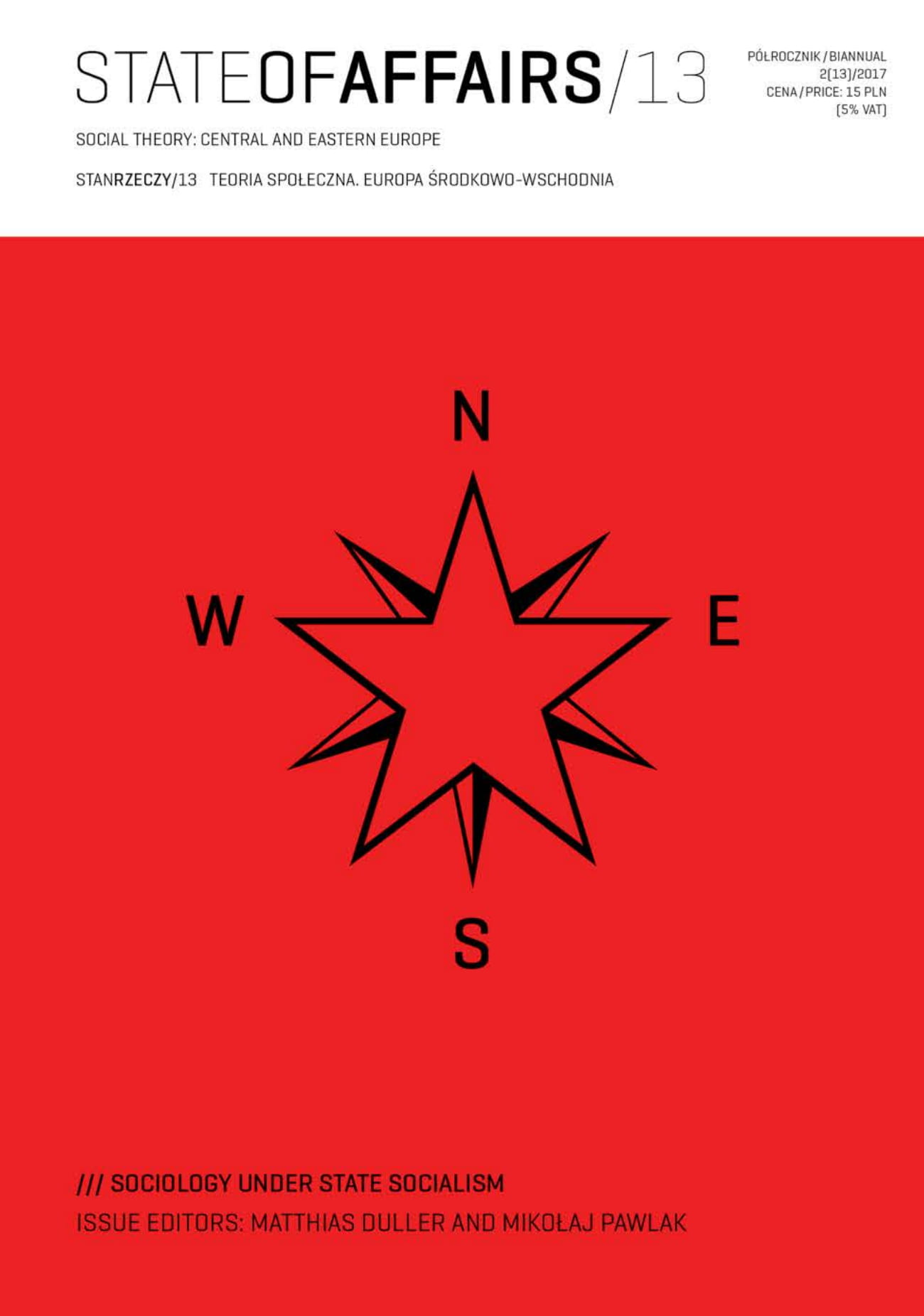

The model of society put forward by Marxist theoreticians as descriptive of a post-revolutionary society had a quasi-constitutional status in countries that claimed to adhere to Soviet-type socialism, particularly those of Eastern Europe. As the model’s main function was to legitimise the actions of those who wielded power, it acquired doctrinal significance. In the Eastern European countries, the history of the sociology of social structure and stratification clearly illustrates the conservative nature of official doctrine. However, the real mechanisms of society, in so far as they deviated from the official paradigm, upset doctrinal stability and may consequently have led, if not to a revision of the official dogmas, then to the acceptance of a certain degree of flexibility. In order to understand the development of the theoretical analysis of social stratification and social inequalities (the most sensitive area of debate) in totalitarian and post-totalitarian Soviet type societies, it must be noted that post-war sociology has reflected a continuing effort by sociologists to create an independent scientific framework for their discipline. This is why we try, in this article, to combine evaluating the attitudes of different Eastern European sociologists from across the political spectrum with the evolution and adaptation of their theoretical approaches and creativity.
More...
The post-war history of Romanian sociology followed a tortuous path, similar to the evolutions within other countries of the Soviet Bloc. Defined as a “bourgeois” and “reactionary” social science, sociology was purged from the academic field for almost two decades. Its subsequent re-institutionalisation in the mid-1960s was a process largely influenced by social evolution in Romania (industrialisation, urbanisation, and the collectivisation of agriculture), but also by the desire to re-connect the Romanian social sciences to the international field of dialogue and debates. My paper discusses not only the institutional articulation and development of sociology in communist Romania, but also how the discipline was re-imagined and re-contextualised by the regime.
More...
For all the post-war decades sociology in Poland has been focused on problems that are typical of peripheral modernising societies. The aim of this text is to identify, from today’s perspective, successive stages of sociology’s development after the Second World War. In the beginning, sociology was focused on perceiving the communist revolution as a social laboratory. In the 1960s and 1970s, Polish society underwent enforced industrialisation and urbanisation. In the next decade, studies were dominated by critical analysis of the communist system in crisis. After 1989, social scientists started to study the post-communist transformation, which was seen as a “return to normality.” The entire time, sociological studies oscillated between the monitoring of project implementation and the recording of new grass roots processes. The author considers that sociology’s recent departure from the narrative of catching up and imitation creates a chance for a more precise view of social processes in Poland.
More...
This article covers the development of sociology as a scientific discipline in Belarus in the period of the 1960s through 1980s. It analyses the close interrelation between sociological and philosophical knowledge. It also looks at the phenomenon of the double identity of the sociologist and the philosopher, leading to their reciprocal influence. The indirect influences of Western sociological and philosophical conceptions are explained as an important source of sociology’s development. Analysis shows that some Western ideas were known rather well and were presented in academic publications and textbooks in the form of “criticism of bourgeois science,” which, despite its critical form, could often provide real information. Analysis of the main texts (monographs, textbooks, and dictionaries, as well as memoirs) helps to cover the main problems, approaches, works, and concepts that were transferred to, and referred to, in Belarusian sociology in the period of the 1960s through 1980s. The process of transfer had a slow but permanent and constant character and the usage of Western conceptions became ever more normal and legitimated. The findings reveal the real importance of “Western” knowledge as a “shadow” factor in the development of sociology (often in close connection with philosophy) in Soviet Belarus in the 1960s through 1980s.
More...
This paper addresses the following research question: what shaped the emergence of sociological research during the period of late socialism in Albania? The second aim of the paper is to reveal the causal mechanism by which a liberalised cultural policy brought about a shift. The traditional role of the socialist intelligentsia lessened in importance while the role of social scientists emerged. In the very final years of the state socialist regime, in 1989 to 1990, these latter were pitted against Party cadres and representatives in defending a limited yet free academic practice. In order to explain the intricate, early process of the emergence of sociology under state socialism in Albania, this paper utilises a layered theoretical framework that tries to capture the interaction between stages of regime development, the coexistence of various competing modes of legitimation, and the transformation of the heteronomous sector of cultural production into an emergent field of cultural production.
More...
This article concerns the Warsaw School of Marxism, which was created at the University of Warsaw after the Second World War and functioned simultaneously with the famous Warsaw School of the History of Ideas. The Warsaw School of Marxism was formed in the circle of Julian Hochfeld, a pre-war socialist who not only wanted to bring Marxism into the social sciences and culture in Poland but also to redefine it in order to use it to analyse socialist societies. Inspired by Hochfeld’s ideas, his pupils – including Zygmunt Bauman, Włodzimierz Wesołowski, Maria Hirszowicz, Jerzy Wiatr, Witold Morawski, and Aleksandra Jasińska-Kania – engaged in original reflection and research. Some of their studies came to be seen as milestones for sociology in Poland. The history of the school is presented here in the context of the social and political changes occurring in the Polish People’s Republic: Stalinism, the “Polish Way to Socialism” after 1956, and the breakthrough between the 1960s and 1970s. The history of the school is interesting in itself and can also serve to further an understanding of the dynamics of “real socialist” societies within the framework of totalitarianism.
More...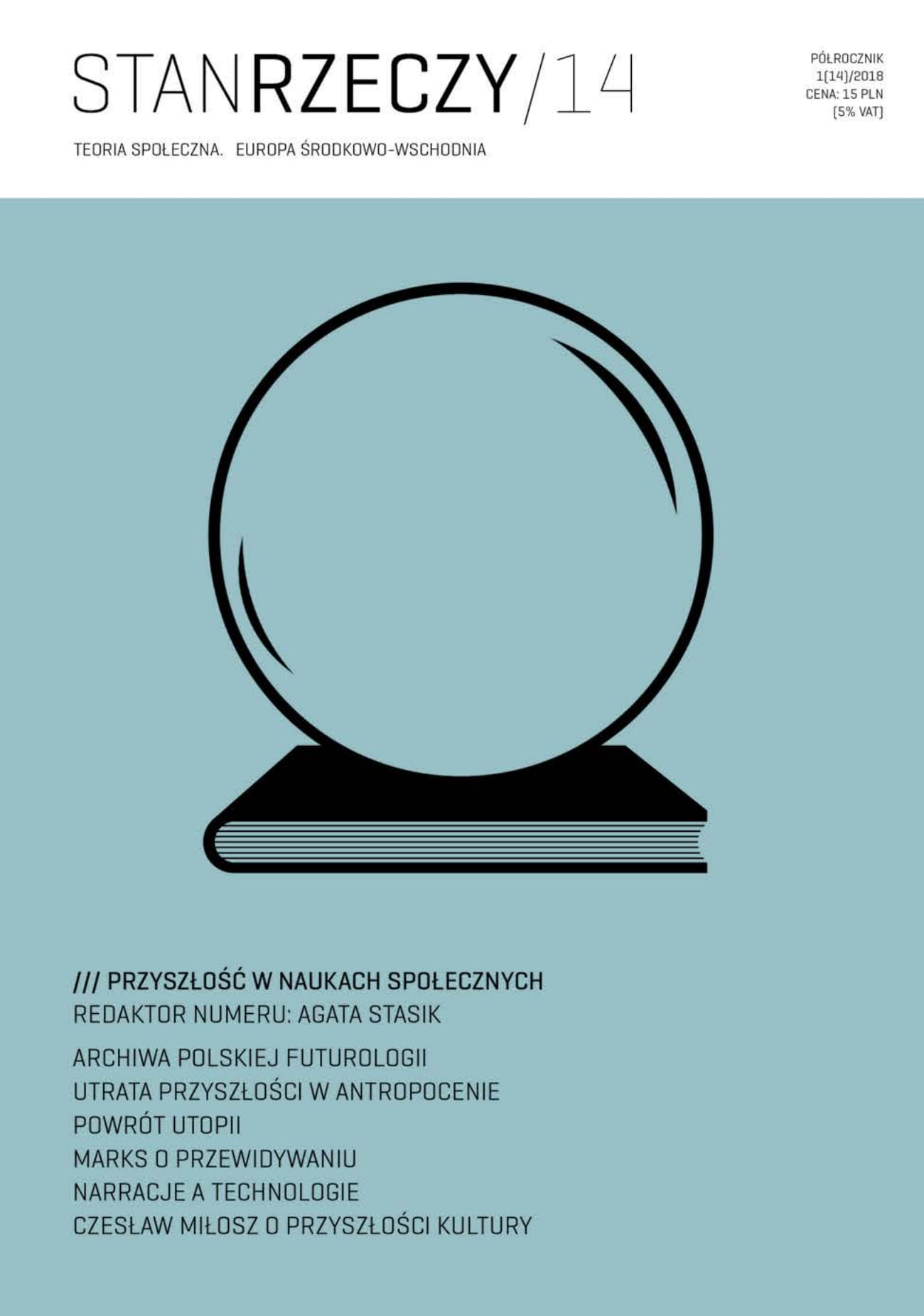
In traditional cultures, dreams and visions are often considered as prophecies. From the position of psychoanalysis such a view, can even be defended, as dreams and visions present wishes that demand realization and can influence the future. Today’s communication is largely based on a visual message. This state is described by postmodern concept of culture, according to which the image replaced reality – the “map” becomes the “territory”. For this reason, the study of visual culture can be practiced as an analysis of the collective visions, looking for manifestations of unconscious wishes and the first signs of emerging cultural processes. Fashion, design and architecture shape the picture of everyday life – they define the new and desirable images and views, providing rich material for such analysis. In times of political utopia deficits, aesthetic utopias can shape the collective identities and aspirations.
More...

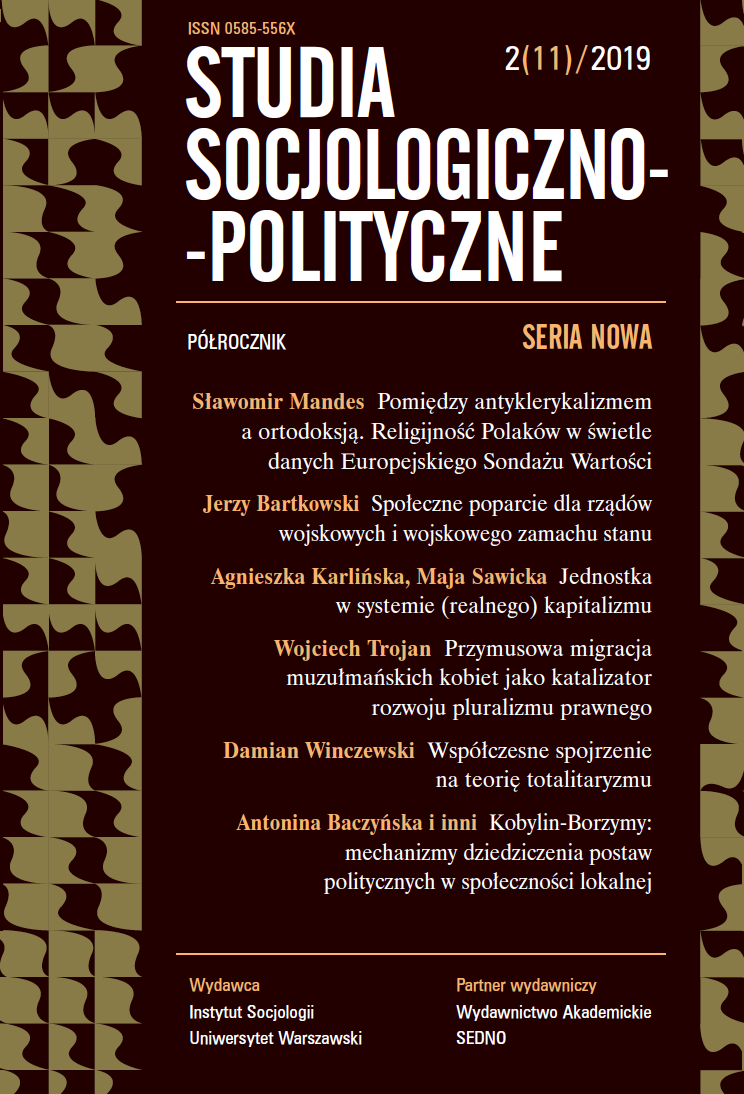
Poles’ religiosity is sometimes presented as a case falsifying the secularization paradigm. One of the main explanations for this phenomenon was proposed by José Casanova in his theory of public religion, which shows that the socio-political commitment of the Church immunizes against secularization. Basing on data from the European Values Study, this article aims to verify this thesis on the example of Poland. The analysis shows that while the influence of the Catholic church on the representation of the desired socio-political order is systematically weakening, on the other hand the level of beliefs remains more or less unchanged and high. Poles have also been and are reluctant to accept public religion, which leads to the privatization of religion and contradicts the assumptions of the Casanova theory.
More...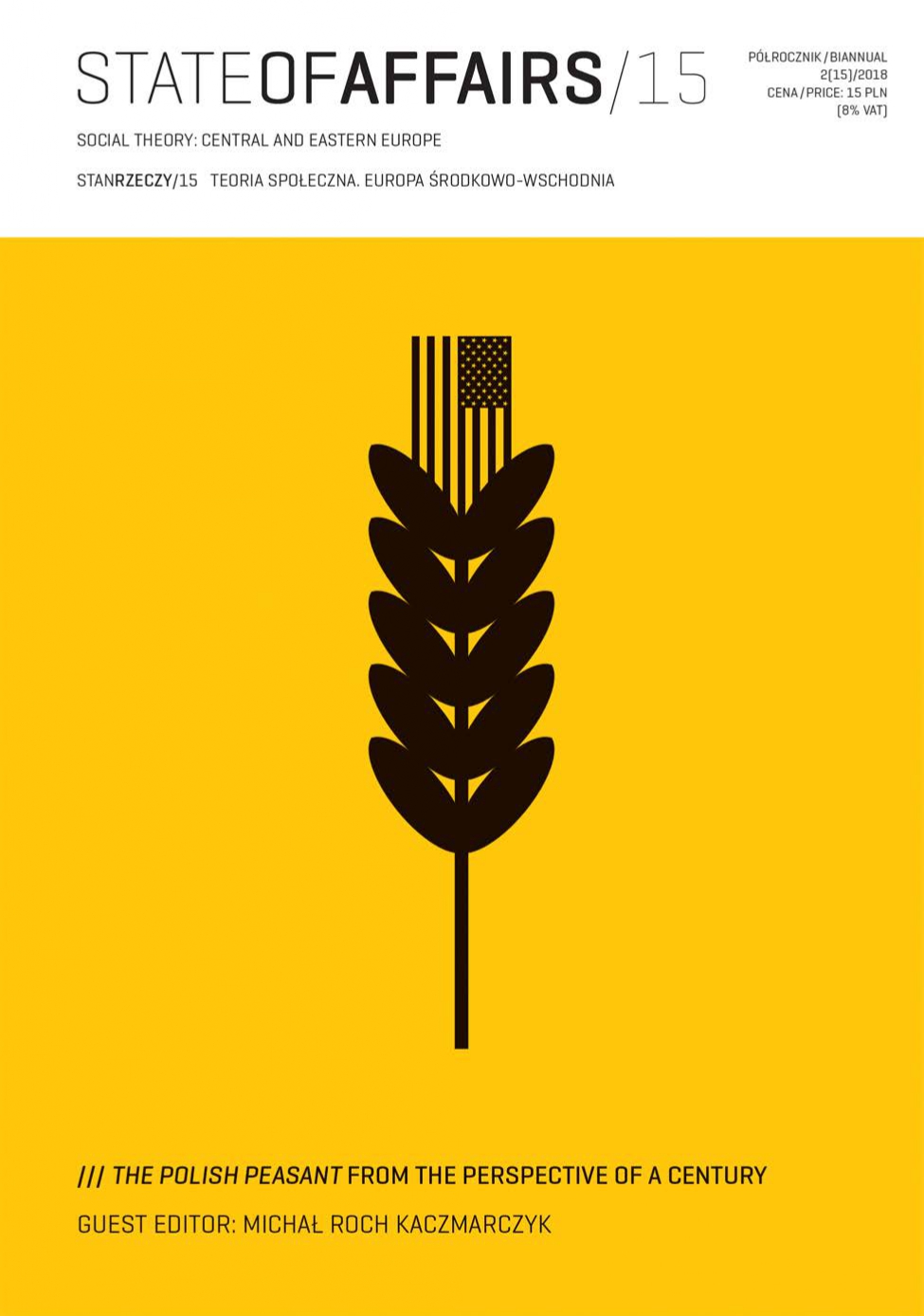

In this article the author shows how the exploding role of biology in William Thomas’s sociology and social psychology has changed. Since the beginning of his career, this researcher addressed numerous topics that involved both biological and social factors – he commented on the nature of gender, race, instincts, prejudice and evolution. His departure point was biologism, which proclaimed that innate predispositions are a variable independent of social processes. In the following years, Thomas changed his beliefs, recognising that it was culture and society that left its mark on physiological and psychological development. The changes in Thomas’s reasoning are described by the author against the background of past and present views on the relationship between society and the brain, claiming that his late views could resonate with today’s approaches.
More...
The present article represents a new attempt to read the first two volumes of The Polish Peasant in Europe and America from the perspective of the sociology of emotions. Reconstructing Thomas and Znaniecki’s approach to emotions entails defining the place of emotions (as emotional habits, feelings, and sentiments) in a theoretical framework of values and attitudes, and presenting how Thomas and Znaniecki took affectivity into account at the analytical level. The authors’ approach seems to correspond to the contemporary understanding of emotions, which avoids a separation between the individual and the social, the emotive and the cognitive.
More...
The Polish Peasant in Europe and America as a Study of Fears and Fantasies Related to Modernisation
The aim of this article is to reread The Polish Peasant in Europe and America as a representation of the fears and modernisation fantasies of its era. I analyse the patterns of gendered family relations and ideals of femininity and masculinity constructed by Thomas and Znaniecki within the framework of rural–urban discourses. As I will show, in The Polish Peasant we find huge contradictions between the liberal and conservative perspectives presented. On the one hand, the authors introduce the concept of “organisation – disorganisation – reorganisation,” which is supposed to be scientific and thus non-ideological. On the other hand, the authors’ patterns of interpreting empirical data show numerous gender bias and patriarchal schemes. As a result, the authors create an opposition in which whatever is rural is the cradle of authenticity, of naturalised national and gendered family values, and whatever is urban is dangerous and demoralising due to escaping the former strong rural social control. In The Polish Peasant the authors thereby construct the “morally healthy” model of a national and patriarchal rural community of families untouched by individualisation and women’s emancipation. Such a model had a patriarchal division of gender roles within a religiously devout, strong (meaning indissoluble), multi-generational family. In The Polish Peasant we can find both a nostalgia – which was typical of its era – for a “pre-modern,” rural, conservative civilisation, and worry about the moral health of women in the urban world. However, it is an ambivalent nostalgia accompanied by a conviction of the inevitability of social change.
More...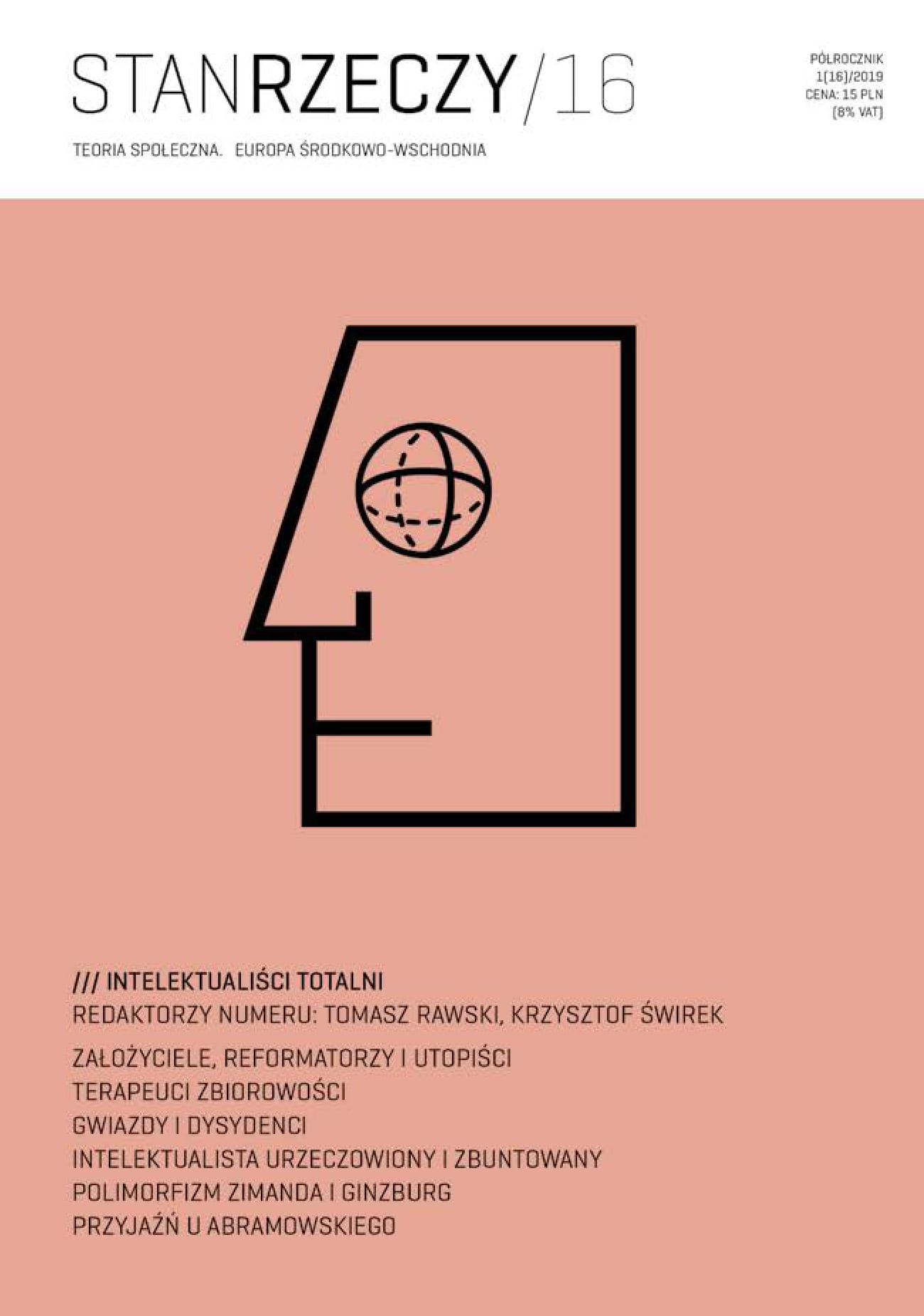
This article concerns Karl Mannheim’s theory of the intelligentsia and its importance for his sociology of knowledge. The terms used by Mannheim are defined in the introductory part of the article. The meaning of the words “intelligentsia” and “intellectuals” are based on diverse sociological theories. The famous concept of a “relatively unattached intelligentsia” derives from the assumption that this social stratum does not participate directly in the struggle between different group consciousnesses (utopiasa nd ideologies). As a result of historical processes it became alienated from society and was thus able to gain a wider understanding of historical truth. In the article, the type of intellectual who is seeking this truth is called a total intellectual, because such a person has the ability to see society as a totality. The concept of totality and its Hegelian sources are also analysed in the paper. Being distanced from the problems of class society is a resultof modern education and allows the intellectual to explore the holistic picture of the struggle between different worldviews. However, because of their education, intellectuals are seen as a foreign element in society. This feature of the intelligentsia is discussed in reference to Georg Simmel’s essay “The Stranger.” The final part of the article deals with the problem of the social role of total intellectuals, who should try to become engaged in politics despite their isolated position.
More...